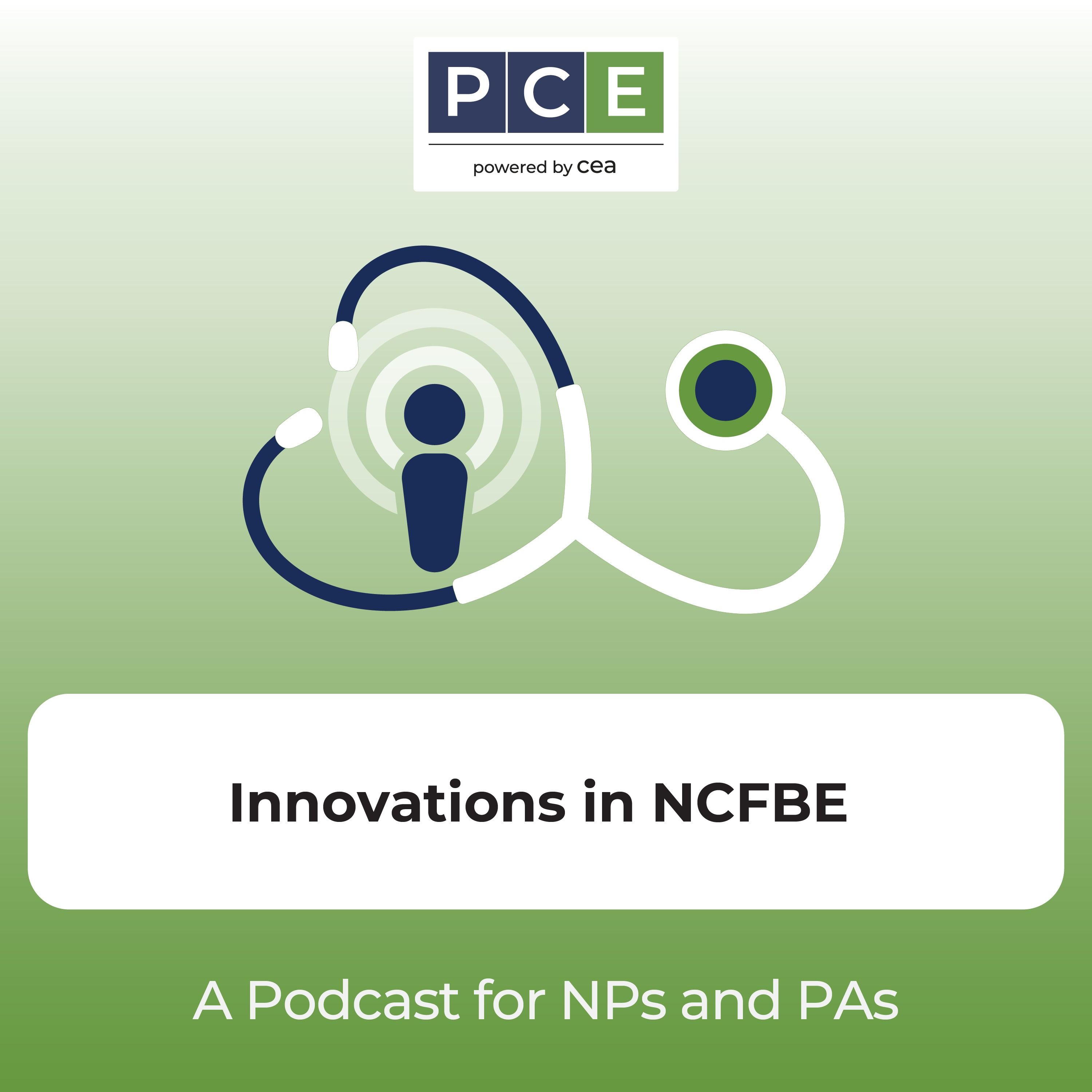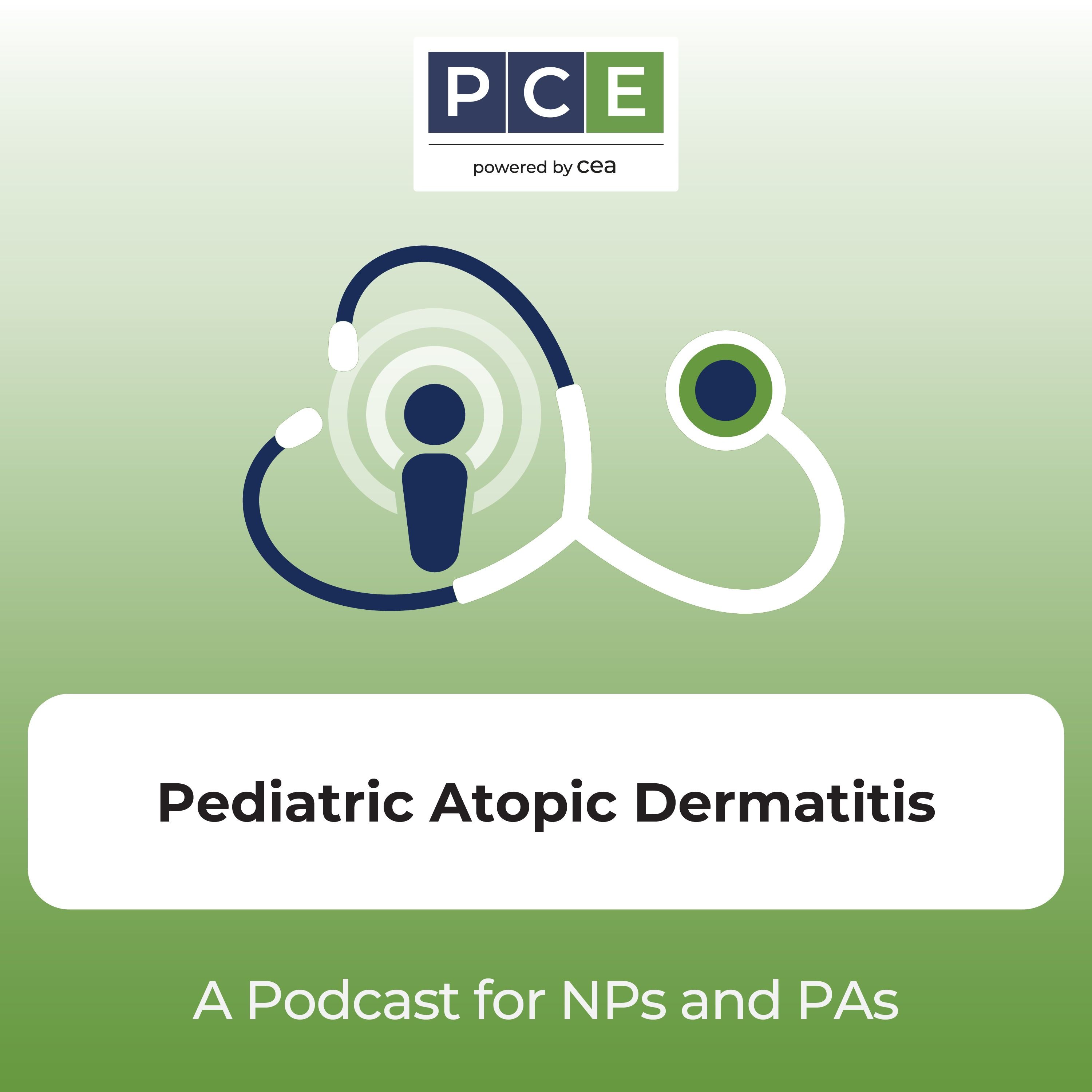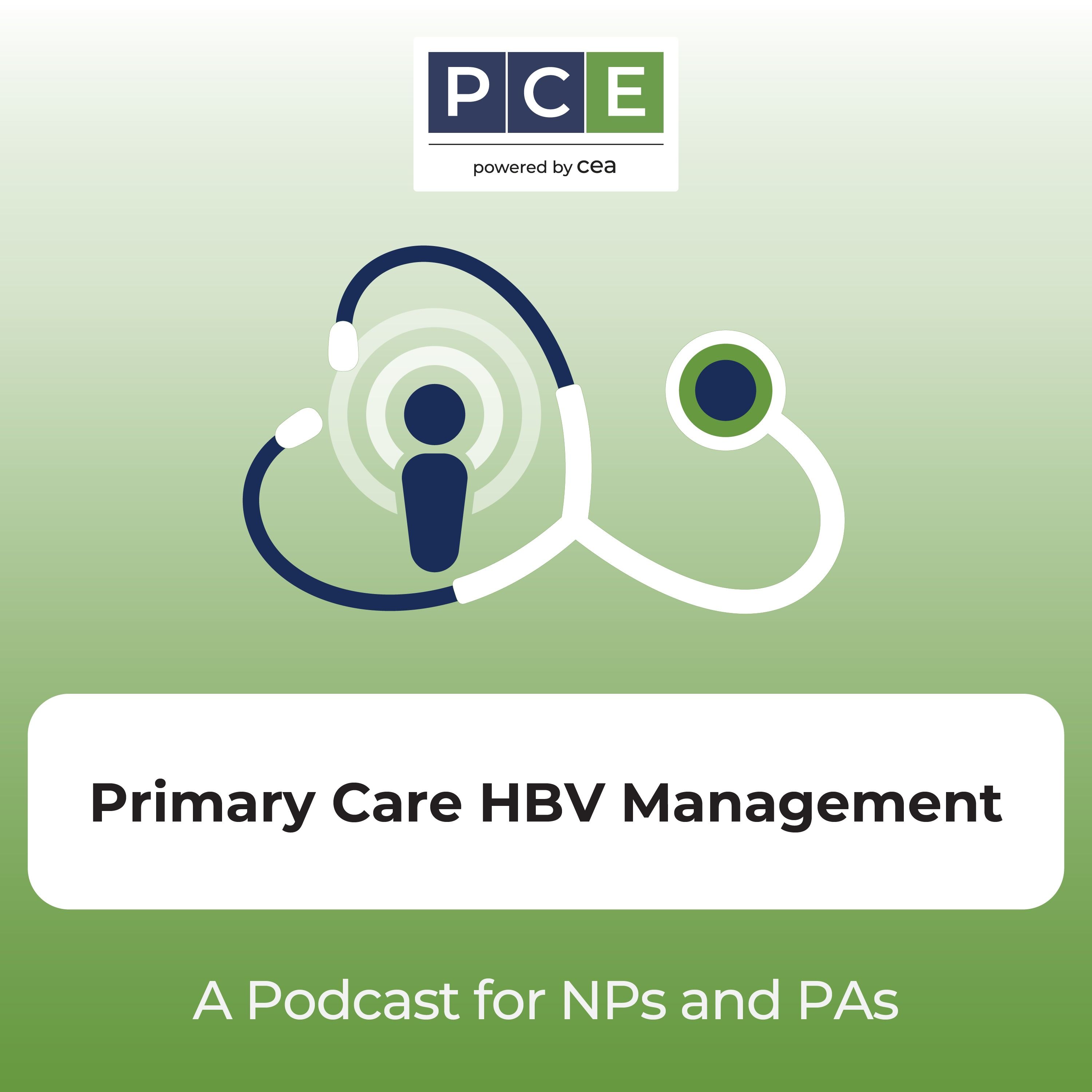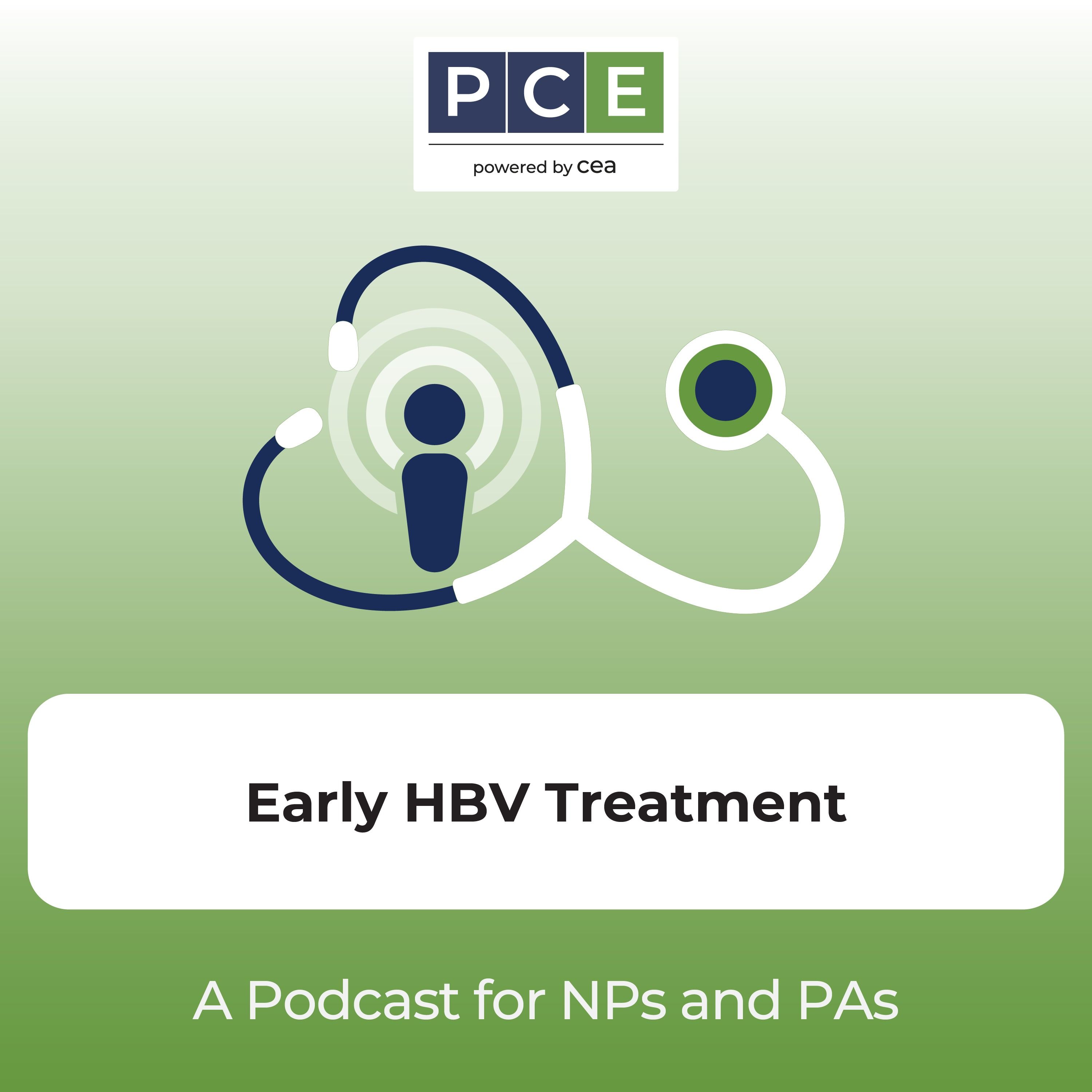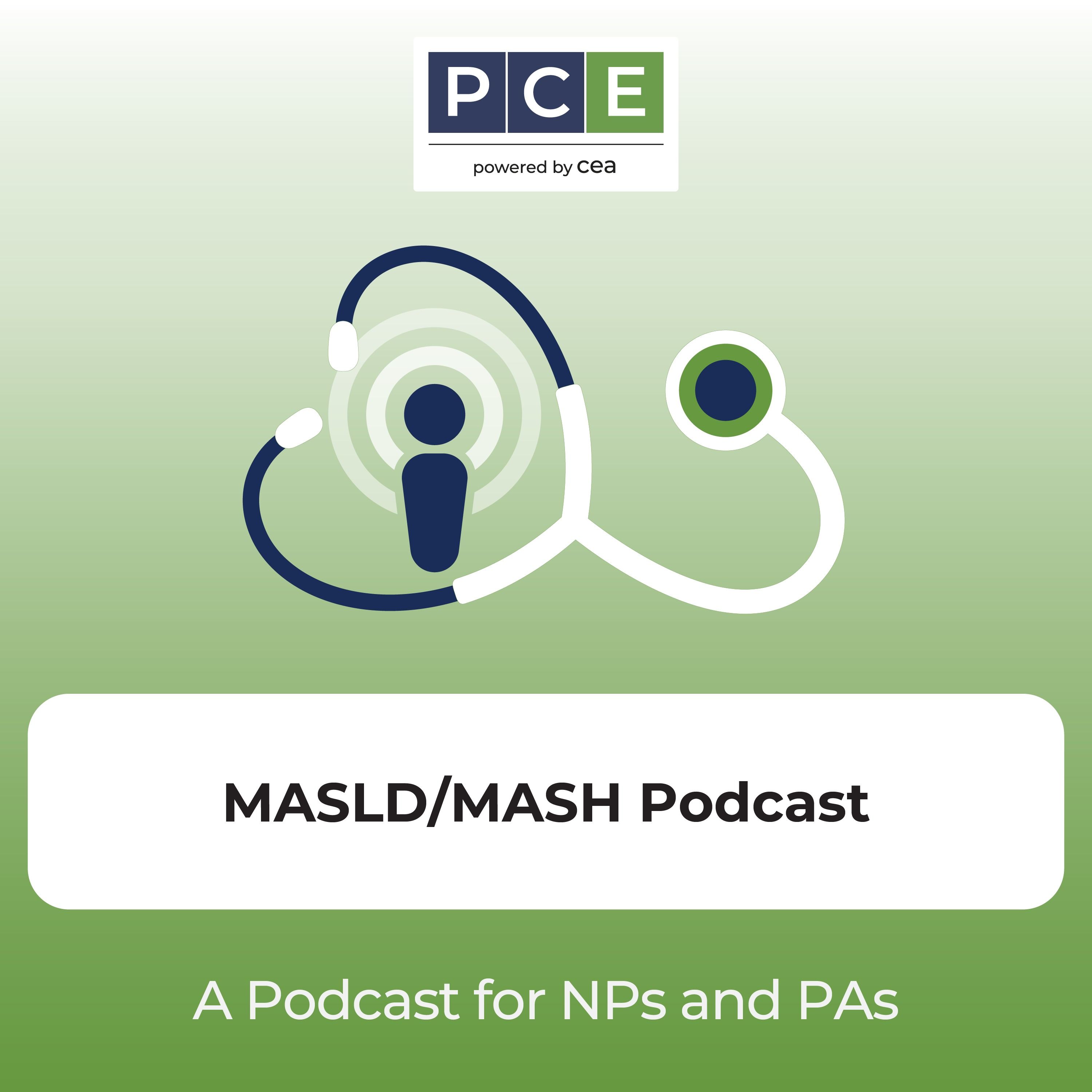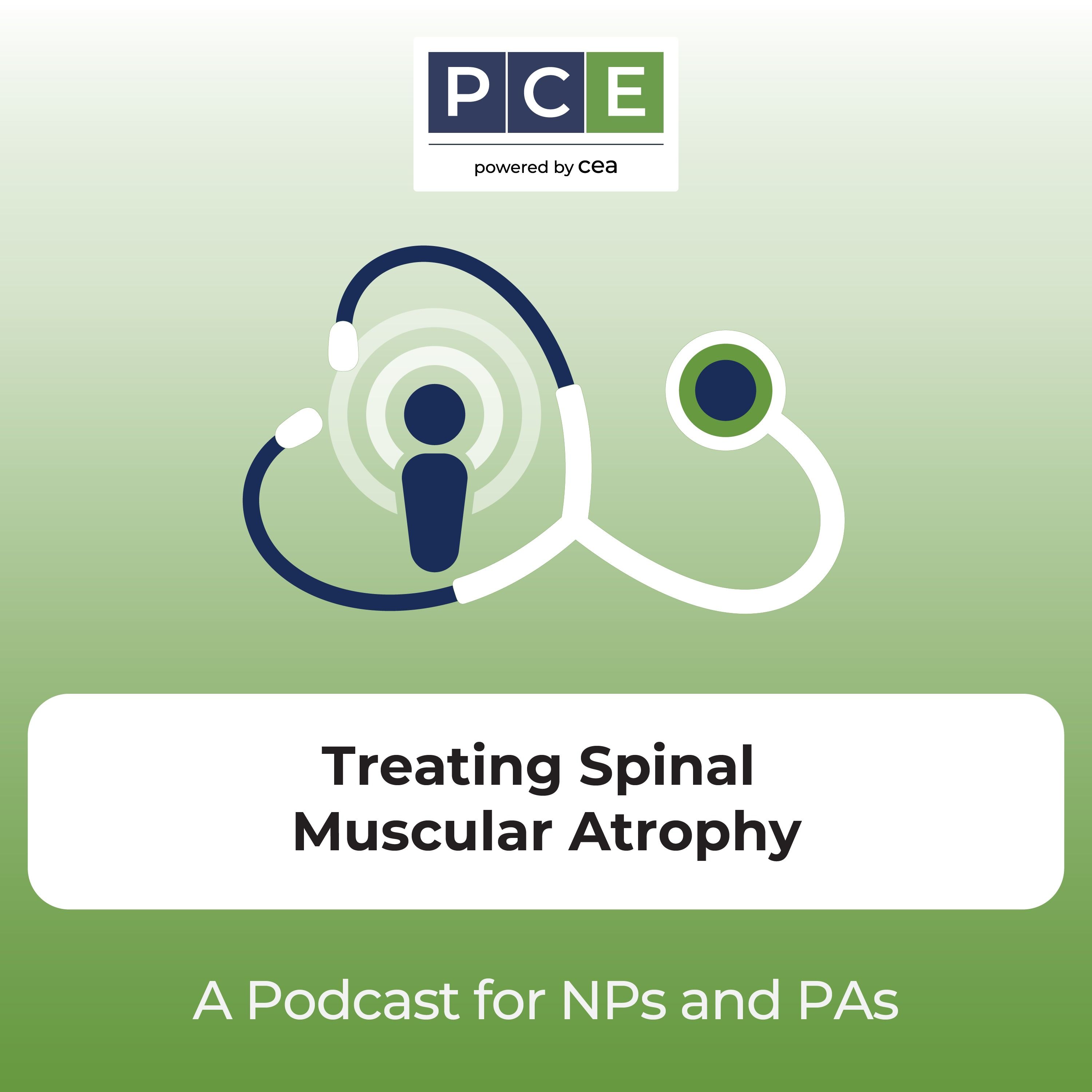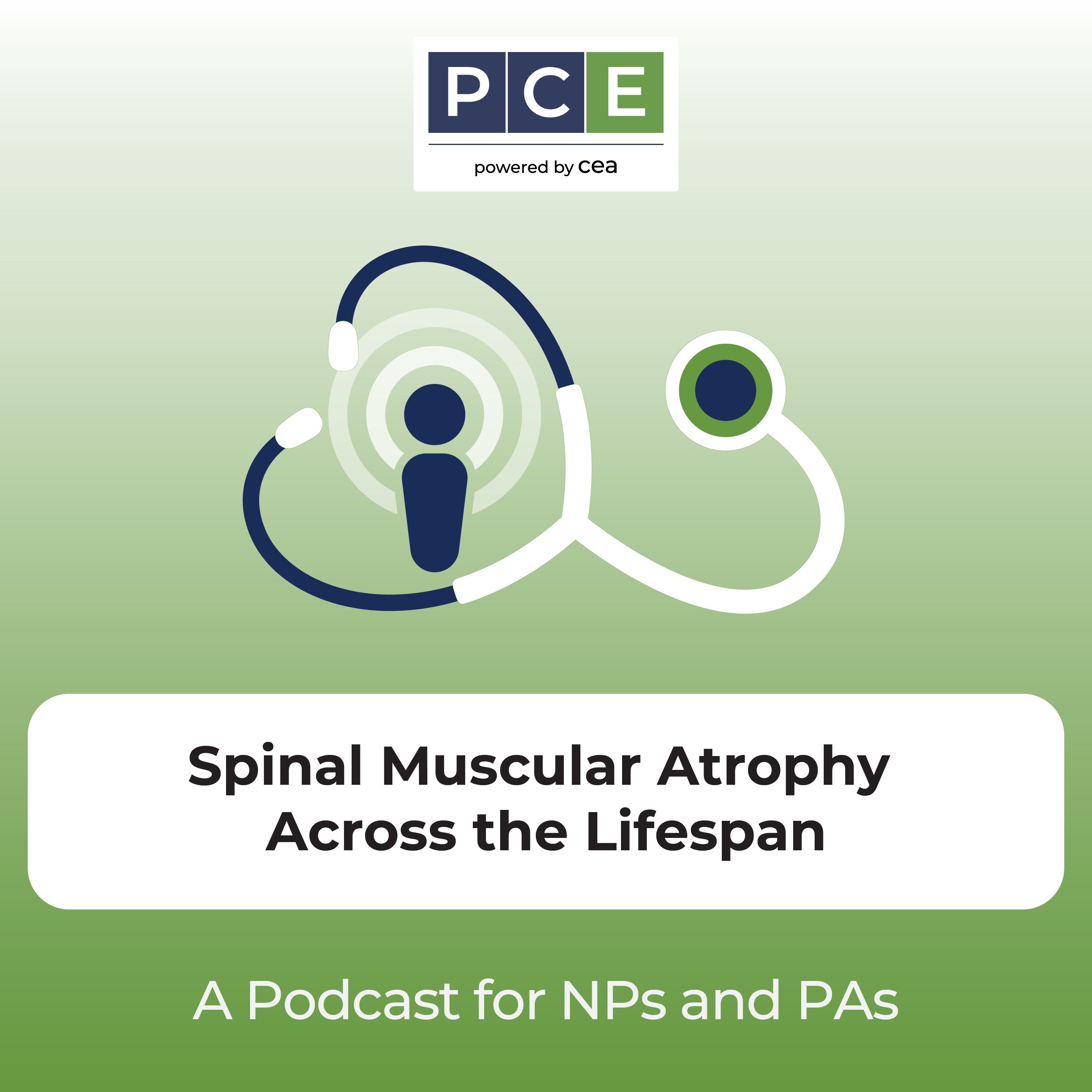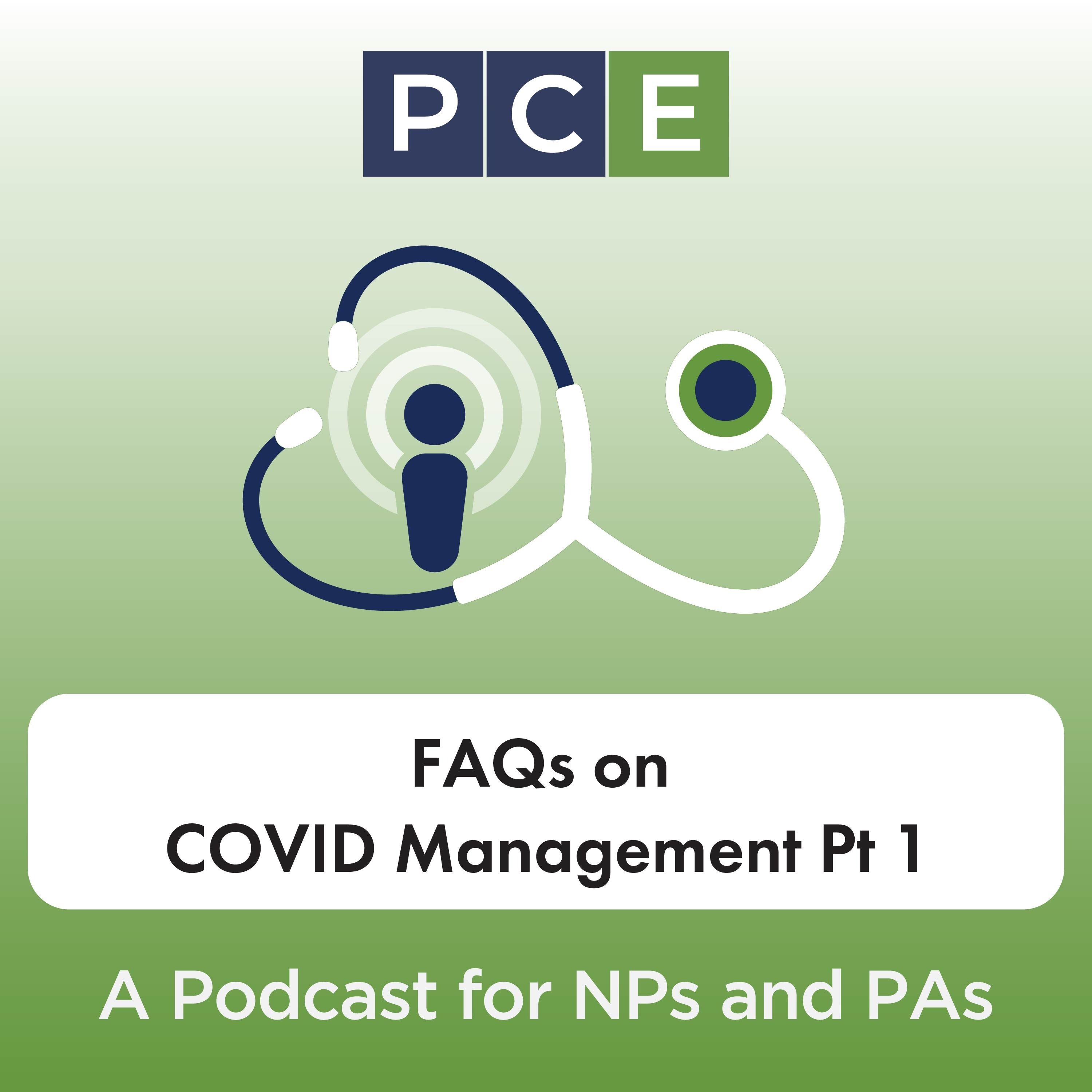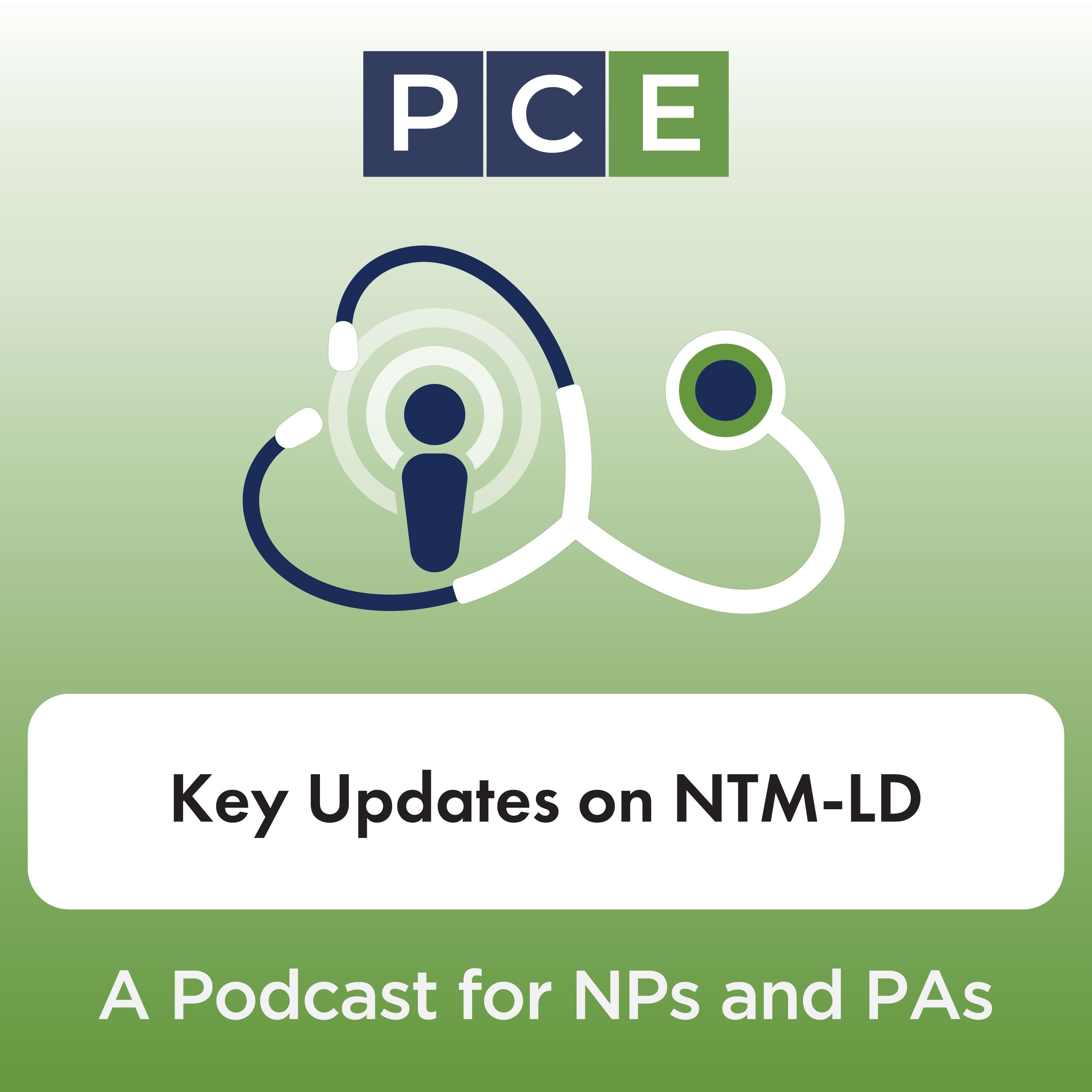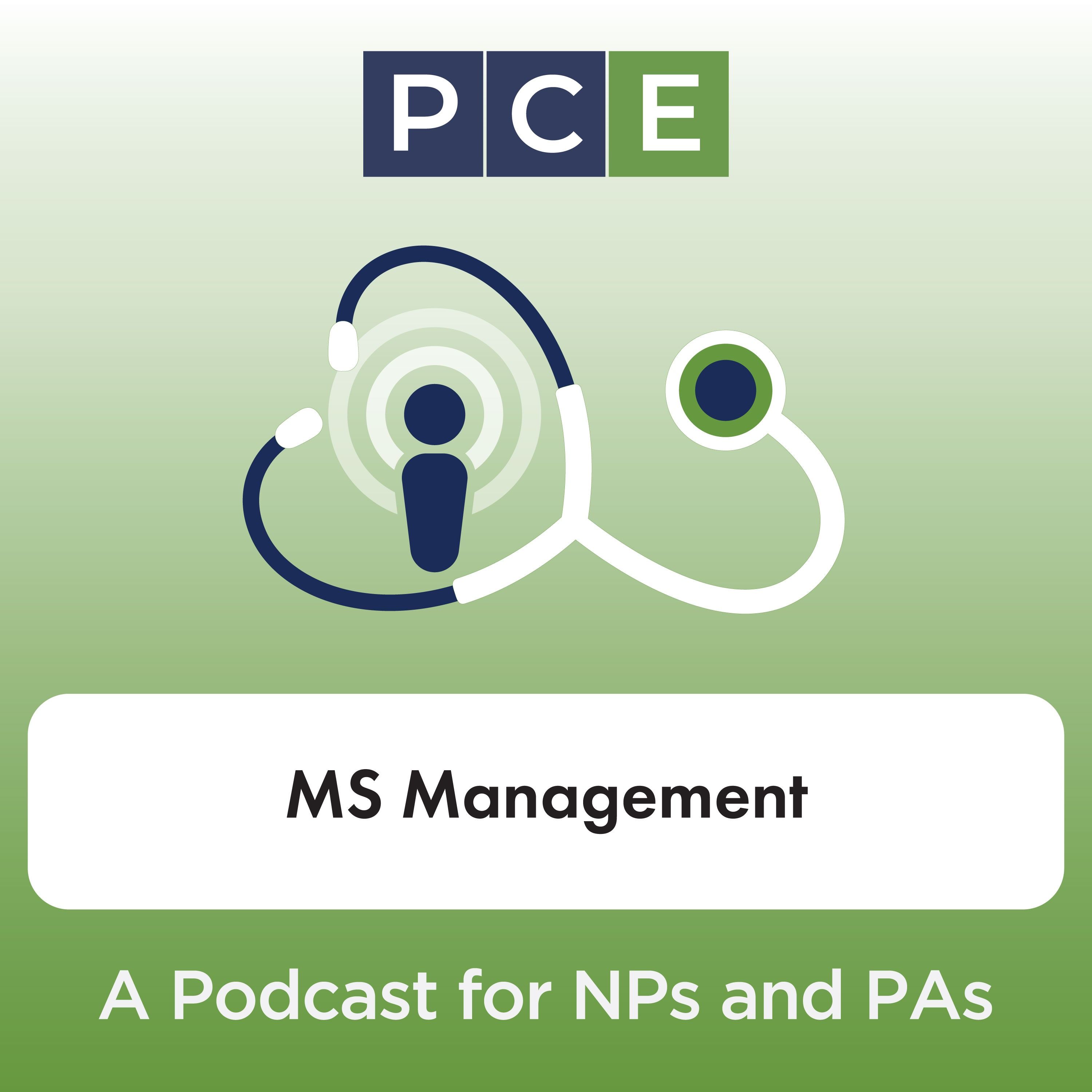Discover Decera Clinical Education APP Podcast
Decera Clinical Education APP Podcast

Decera Clinical Education APP Podcast
Author: Practicing Clinicians Exchange
Subscribed: 11Played: 56Subscribe
Share
© 2020 PCE Podcast
Description
Practicing Clinicians Exchange keeps advanced practice providers up to date with timely interviews from the front lines on current advances and best practices in medicine. Many of the podcasts are available for CE/CME credit.
90 Episodes
Reverse
In this podcast, Brett M. Elicker, MD, and David E. Griffith, MD, ATSF, FACCP, FRSM, discuss the pathophysiology of non–cystic fibrosis bronchiectasis (NCFBE), the patient burden, and best practices with diagnosing NCFBE, including:The vicious vortex of NCFBE (ie, airway dysfunction, inflammation, infection)Cough as the most significant symptom and burdenImaging bronchiectasis with classic and inflammatory findingsDifferentiating the causes of NCFBE to inform patient carePresentersBrett M. Elicker, MDProfessor of Clinical RadiologyChief, Cardiothoracic Imaging DivisionDepartment of Radiology & Biomedical ImagingUniversity of California, San FranciscoSan Francisco, CaliforniaDavid E. Griffith, MD, ATSF, FACCP, FRSMProfessor of MedicineDivision of Mycobacterial and Respiratory DiseasesDepartment of MedicineNational Jewish HealthDenver, ColoradoProgram page: https://bit.ly/4mZbYsm Hosted by Simplecast, an AdsWizz company. See pcm.adswizz.com for information about our collection and use of personal data for advertising.
Respiratory Syncytial Virus (RSV) significantly impacts adults, especially those over age 60 and those with chronic conditions.In this podcast, nurse practitioners Drs. Carrico and Stevenson discuss the underestimated burden of RSV. The podcast also explores practical strategies for increasing vaccine uptake that you can apply to your practice starting today so that you can protect your patients against RSV.Listen as they discuss:The Burden of Adult RSVRSV Vaccines for Adults: Data and RecommendationsRSV Vaccine UptakePractical Strategies to Increase RSV Vaccine UptakeFaculty:Dr. Ruth Carrico is a family nurse practitioner and senior consultant with Carrico & Ramirez, PLLC focused on infectious diseases, infection prevention and control, and vaccinology. She is based in Louisville, Kentucky and is a Professor, adjunct faculty, with the University of Louisville School Medicine, Division of Infectious Diseases. Dr. Carrico has received training specific for healthcare epidemiology at the Centers for Disease Control and Prevention (CDC) in conjunction with the Rollins School of Public Health at Emory University in Atlanta and the Society for Healthcare Epidemiology of America (SHEA). Dr. Carrico has worked in the field of infectious diseases and infection control for more than thirty years. Dr. Carrico also maintains a clinical practice focused on vaccines, vaccination, and immunization processes.Dr. Audrey M. Stevenson is a family nurse practitioner with over 40 years of clinical, public health, and leadership experience. Dr. Stevenson, who holds a master of public health and master of nursing degrees, received her doctorate in public health from the University of Utah. She formerly worked in public health for over 34 years and was the former Division Director of Family Health and Clinical Services of the Salt Lake County Health Department in Salt Lake City, Utah. She currently works as a consultant and teaches graduate FNP and MPH students at two universities. Dr. Stevenson is also a member of the statewide vaccine advisory board, where she collaborates on vaccine policies and recommendations for the state. Previously, Dr. Stevenson served as Vaccination Branch Director for the COVID-19 Incident Command for Salt Lake County, where she directed the vaccination strategies for 1.2 million residents of Salt Lake County. She has been a vaccine champion for over 30 years. Learn more:Download this practical infographic to help you integrate RSV vaccination into your clinical practice.https://bit.ly/43mzacqFor more information for nurses, subscribe to the PCE podcast channel on your favorite player! Hosted by Simplecast, an AdsWizz company. See pcm.adswizz.com for information about our collection and use of personal data for advertising.
Listen in as Evette Whaley and Katie Smiley PA-C talk about innovative strategies for NPs and PAs to improve treatment for pediatric patients with atopic dermatitis. They discuss how to assess the whole patient and their family to better understand the impact of the disease on their quality of life. They also discuss newer treatments and how they can be incorporated into a comprehensive management plan for pediatric patients and their caregivers. Presenters:Evette WhaleyCaregiverBaltimore, Maryland Katie Smiley PA-CGrants & Clinical DirectorProgram Coordinator, Multidisciplinary Atopic Dermatitis ProgramAllergy & Asthma Medical GroupRady Children’s HospitalSan Diego, CaliforniaLink to full program:https://bit.ly/43svVyJ Hosted by Simplecast, an AdsWizz company. See pcm.adswizz.com for information about our collection and use of personal data for advertising.
Listen in as rheumatology experts Alexis Ogdie, MD, MSCE, and Julia Swafford, PA-C, DFAAPA, discuss emerging therapies and strategies in managing patients with axial spondyloarthritis or psoriatic arthritis, including:The current treatment landscape (eg, small molecules, biologics)Risk factors to consider when prescribing JAK inhibitorsKey considerations regarding comorbidities, especially in addressing depression, anxiety, or social ideation Nonpharmacologic options to improve treatment outcomesShared decision-making strategies to enhance patients’ investment in their carePresenter:Alexis Ogdie, MD, MSCEDirector, Penn Psoriatic Arthritis and Spondylarthritis ProgramDirector, Penn Center for Clinical Epidemiology and BiostatisticsUniversity of PennsylvaniaPhiladelphia, PennsylvaniaJulia Swafford, PA-C, DFAAPAPresident of SPARBronson Battle Creek Rheumatology SpecialistsBattle Creek, MichiganLink to full program: bit.ly/4gkTzSv Hosted by Simplecast, an AdsWizz company. See pcm.adswizz.com for information about our collection and use of personal data for advertising.
In this episode, learn how early and sustained HBV care can be enhanced by expanding the role of primary care providers in HBV management. Learn how to:Engage key stakeholders in the provision of HBV careProvide HBV management resources to support PCPs who are doing screeningConsider specialty and primary care collaborations that empower PCPs with clear guidance on how to manage patients living with HBVPresenters:Su Wang, MD, MPH, FACPMedical DirectorCenter for Asian Health and Viral Hepatitis ProgramsCooperman Barnabas Medical CenterRWJBarnabas-Rutgers Medical GroupAssociate MemberHealth Care Policy and Aging ResearchThe Rutgers Institute for HealthSenior AdvisorGlobal Health, Hepatitis B FoundationFlorham Park, New JerseyRichard R. Andrews, MD, MPHPresident, Houston Viral Hepatitis Task ForceFormer Co-Chair, National Task Force on Hepatitis BBoard-Certified Family MedicineAddiction Medicine PhysicianHouston, TexasRuth Brogden, MPHPatient AdvocateAmy S. Tang, MDFormer Co-Chair, National Task Force on Hepatitis BDirector of Immigrant HealthNorth East Medical ServicesSan Francisco, CaliforniaLink to full program: https://bit.ly/3TuqFHILink to the slides:https://bit.ly/44hXpHuGet access to all of our new podcasts by subscribing to the CCO Infectious Disease Podcast on Apple Podcasts, Google Podcasts, or Spotify. Hosted by Simplecast, an AdsWizz company. See pcm.adswizz.com for information about our collection and use of personal data for advertising.
In this episode, Mark S. Sulkowski, MD, FIDSA, FAASLD; Tatyana Kushner, MD, MSCE; Paul Y. Kwo, MD; and patient advocate Jacki Chen, PhD, consider barriers and solutions for more expansive HBV treatment in the United States. Topics include:Patient subgroups to consider for treatment outside guideline criteriaAdverse event and cost-effectiveness considerationsIntegration of patient perspectives in wider treatmentPresenters:Mark S. Sulkowski, MD, FIDSA, FAASLDProfessor of MedicineDirector, Division of Infectious Diseases, Johns Hopkins Bayview Medical CenterJohns Hopkins University School of MedicineBaltimore, MarylandTatyana Kushner, MD, MSCEAssociate ProfessorDivision of Liver DiseasesIcahn School of Medicine at Mount SinaiNew York, New YorkPaul Y. Kwo, MDProfessor of MedicineDirector of HepatologyStanford University School of MedicinePalo Alto, CaliforniaJacki Chen, PhDPatient Advocate Link to full program: https://bit.ly/3TuqFHILink to the slides:https://bit.ly/4a60GM4Get access to all of our new podcasts by subscribing to the CCO Infectious Disease Podcast on Apple Podcasts, Google Podcasts, or Spotify. Hosted by Simplecast, an AdsWizz company. See pcm.adswizz.com for information about our collection and use of personal data for advertising.
In this episode, Arun B. Jesudian, MD, and Mazen Noureddin, MD, MHSc, discuss the expert-informed clinical pathway for the multidisciplinary care of patients with MASLD or MASH, current and emerging therapeutics, and management optimization strategies. Presenters:Arun B. Jesudian, MDAssociate Professor of Clinical MedicineDivision of Gastroenterology and HepatologyWeill Cornell MedicineNew York, New YorkMazen Noureddin, MD, MHScProfessor of MedicineHouston Methodist HospitalDirector Houston Research InstituteHouston, TexasContent based on an online CME program supported by independent educational grants from Novo Nordisk.To view the full program on “Clinical Pathways: Multidisciplinary Approach to Managing Metabolic Dysfunction‒Associated Steatohepatitis,” including 4 CME/CE-certified text modules with accompanying slidesets, 4 ClincalThought commentaries, and a downloadable infographic resource on the AGA MASLD MASH Clinical Care Pathway, visit clinicaloptions.com or click on the link below.Link to full program:https://bit.ly/3Tyu7At Hosted by Simplecast, an AdsWizz company. See pcm.adswizz.com for information about our collection and use of personal data for advertising.
In this episode, Douglas Dieterich, MD, leads a panel discussion with Camilla S. Graham, MD, MPH, and Robert Wong, MD, MS, to consider advantages and barriers to universal screening for chronic HBV infection and universal HDV screening in adults with HBV in the United States. Topics include:Updated CDC recommendations for one-time universal screening for HBVAddressing patient-, provider-, and system-level barriers to universal HBV screeningBest practices for implementation of HDV screeningPresenters:Douglas Dieterich, MDDirector, Institute for Liver MedicineProfessor of MedicineDivision of Liver DiseasesMount Sinai School of MedicineNew York, New YorkCamilla S. Graham, MD, MPHCo-Director, Viral Hepatitis ClinicDivision of Infectious DiseasesBeth Israel Deaconess Medical CenterHarvard Medical SchoolBoston, MassachusettsRobert Wong, MD, MS Clinical Associate ProfessorDivision of Gastroenterology and HepatologyStanford University School of MedicinePalo Alto, CaliforniaLink to full program:https://bit.ly/3TuqFHILink to the slides: https://bit.ly/4atS42z Hosted by Simplecast, an AdsWizz company. See pcm.adswizz.com for information about our collection and use of personal data for advertising.
In this episode, Renslow Sherer, MD, and Trinh P. Vu, PharmD, BCIDP, discuss strategies for managing ambulatory patients with acute or previous COVID-19 infection, including:Current COVID-19 landscapeRapid antigen tests and PCR testsRisk stratification of patients who have a positive SARS-CoV-2 testAntiviral treatment (nirmatrelvir + ritonavir, remdesivir, and molnupiravir)Long COVIDPresenters:Renslow Sherer, MDDirector, International HIV Training CenterProfessor of MedicineSection of Infectious Diseases and Global HealthDepartment of MedicineUniversity of ChicagoChicago, IllinoisTrinh P. Vu, PharmD, BCIDPClinical Pharmacy Specialist in Infectious DiseasesDepartment of Pharmaceutical ServicesEmory University Hospital MidtownAtlanta, GeorgiaTo download the slides: bit.ly/3oHKC09To view the full online program: bit.ly/4201xcO Hosted by Simplecast, an AdsWizz company. See pcm.adswizz.com for information about our collection and use of personal data for advertising.
In this episode, Jona Tanguay, MMSc, PA-C, AAHIVS discusses considerations to review with patients to empower them to make their own informed choices in PrEP selection, including:Leveraging PrEP options with unique dosing schedules and/or routes such as long-acting cabotegravir and on-demand 2-1-1 FTC/TDFDifferences in adverse effect profiles between 4 PrEP optionsPotential for HIV resistanceRequirements for compliance and monitoringEvidence in populations with various acquisition behaviorsDrug interaction implications Faculty: Jona Tanguay, MMSc, PA-C, AAHIVSHealth Care Provider and HIV Specialist Whitman-Walker HealthVice President for Education, GLMA: Health Professionals Advancing LGBTQ EqualityClinical Instructor, Yale University School of Nursing Washington, DC Link to full program: https://bit.ly/41WF54o Hosted by Simplecast, an AdsWizz company. See pcm.adswizz.com for information about our collection and use of personal data for advertising.
In this episode, Dr. Parsons and Dr. Battista discuss current and emerging medical therapies for the treatment of spinal muscular atrophy (SMA). They review safety, efficacy, and monitoring parameters of current agents, as well as adjuct therapies in the medication pipeline. This high-level overview includes:Review of FDA-approved medical therapies: nusinersen, onasemnogene abeparvovec-xioi, and risdiplamDiscussion of the safety, efficacy, and monitoring parameters for FDA approved medications, as well as adjuctive agents for medication therapy complicationsReview of ongoing clinical trials on anti-myostatin medications and discussion of the role these agents would play if approved by the FDAPresenters:Julie Parsons, MDCo-Director, Neuromuscular ClinicHaberfeld Family Endowed Chair in Pediatric Neuromuscular DisordersProfessor of Clinical Pediatrics and NeurologyChildren’s Hospital ColoradoDenver, ColoradoVanessa Battista, DNP, MBA, RN, MS, CPNP-PC, CHPPN, FPCNSenior Director of Nursing, Palliative CarePsychosocial Oncology and Palliative CareDana-Farber Cancer InstituteBoston, MassachusettsSupported by an educational grant from BiogenLink to full program:bit.ly/41kw2dKLink to CME: Claim credit -bit.ly/40fkDKD Hosted by Simplecast, an AdsWizz company. See pcm.adswizz.com for information about our collection and use of personal data for advertising.
In this episode, Julie Parsons, MD, discusses the genetic diagnosis of spinal muscular atrophy (SMA), anticipated clinical findings, the importance of newborn screenings, and the next steps to consider after a positive diagnosis is obtained. This high-level overview includes:SMA as an autosomal recessive diseaseDifferences in spinal motor neurons (SMN) 1 and 2 at the time of diagnosis and how these drive severity of diseaseImportant clinical findings in the diagnosis of SMA, as every child may not be identified with newborn screeningThe importance of newborn screening and critical next steps and logistical considerations when receiving a positive screen in your practicePresenters:Julie Parsons, MDCo-Director, Neuromuscular ClinicHaberfeld Family Endowed Chair in Pediatric Neuromuscular DisordersProfessor of Clinical Pediatrics and NeurologyChildren’s Hospital ColoradoDenver, ColoradoVanessa Battista, DNP, MBA, RN, MS, CPNP-PC, CHPPN, FPCNSenior Director of Nursing, Palliative CarePsychosocial Oncology and Palliative CareDana-Farber Cancer InstituteBoston, Massachusetts Supported by an educational grant from BiogenLink to full program: bit.ly/41kw2dKLink to CME: Claim credit - bit.ly/40eyBwr Hosted by Simplecast, an AdsWizz company. See pcm.adswizz.com for information about our collection and use of personal data for advertising.
In this episode, Dr. Battista and Dr. Parsons discuss the importance of care guidelines and the multidisciplinary team in the treatment of spinal muscular atrophy (SMA). This overview will include:The role each member of the interdisciplinary team plays in the care of SMA including physical therapists, occupational therapists, and speech therapistsThe importance of continued, ongoing therapy in addition to medication therapy to provide the greatest improvement in SMA careHow to manage transitions in care, including the transition from pediatrics to adulthood and how to include the necessary support teamsThe role shared decision-making plays in the treatment of patients with SMAPresenters:Julie Parsons, MDCo-Director, Neuromuscular ClinicHaberfeld Family Endowed Chair in Pediatric Neuromuscular DisordersProfessor of Clinical Pediatrics and NeurologyChildren’s Hospital ColoradoDenver, ColoradoVanessa Battista, DNP, MBA, RN, MS, CPNP-PC, CHPPN, FPCNSenior Director of Nursing, Palliative CarePsychosocial Oncology and Palliative CareDana-Farber Cancer InstituteBoston, MassachusettsSupported by an educational grant from Biogen.Link to full program: https://bit.ly/43Dmo7qLink to CME: Claim credithttps://bit.ly/40gulfX Hosted by Simplecast, an AdsWizz company. See pcm.adswizz.com for information about our collection and use of personal data for advertising.
In this episode, Vikramjit Mukherjee, MD, and Cameron Smith, MPAS, PA-C, answer audience questions on how best to care for hospitalized patients with COVID-19 from a live, virtual question and answer webinar. This episode includes expert insights on:Viral coinfections such as influenza and RSVNew data comparing baricitinib and tocilizumab for patients with severe COVID-19Management of bacterial and fungal coinfection while incorporating antimicrobial stewardshipTips for transitioning patients out of the ICU and to the medical floor or homePresenters:Vikramjit Mukherjee, MDAssistant Professor Division of Pulmonary, Critical Care, & Sleep Medicine New York University School of Medicine DirectorMedical Intensive Care UnitBellevue HospitalNew YorkCameron Smith MPAS, PA-CLead Advanced Practice ProviderMedical Intensive Care UnitBellevue HospitalNew York Health and Hospitals New YorkContent based on an online program supported by an independent educational grant from Gilead Sciences, Inc. Link to full program: bit.ly/3z52c00 Hosted by Simplecast, an AdsWizz company. See pcm.adswizz.com for information about our collection and use of personal data for advertising.
In this episode, Vikramjit Mukherjee, MD, and Cameron Smith, MPAS, PA-C, answer audience questions on how best to care for hospitalized patients with COVID-19 from a live, virtual question and answer webinar. This episode includes expert insights on:Supportive care management such as oxygen support, glycemic control, and anticoagulationEscalation of therapy in patients with worsening oxygen requirementsUse of remdesivir in patients with renal dysfunctionBrief commentary on long COVIDPresenters:Vikramjit Mukherjee, MDAssistant Professor Division of Pulmonary, Critical Care, & Sleep Medicine New York University School of Medicine DirectorMedical Intensive Care UnitBellevue HospitalNew YorkCameron Smith MPAS, PA-CLead Advanced Practice ProviderMedical Intensive Care UnitBellevue HospitalNew York Health and Hospitals New York, New YorkContent based on an online program supported by an independent educational grant from Gilead Sciences, Inc.bit.ly/3z52c00 Hosted by Simplecast, an AdsWizz company. See pcm.adswizz.com for information about our collection and use of personal data for advertising.
In this podcast, Susan LeLacheur, DrPH, PA-C, AAHIVS discusses racial disparities in access to HIV prevention (PrEP) and strategies to close these gaps, including:Incorporating comprehensive sexual history into medical appointments and offering PrEP to all sexually active patientsIncrease awareness of PrEP access programs in communities of colorDiversification of the medical workforceFaculty: Susan LeLacheur, DrPH, PA-C, AAHIVSProfessorDepartment of Physician Assistant StudiesSchool of Medicine and Health SciencesThe George Washington UniversityWashington, DCLink to full program: https://practicingclinicians.com/content/hiv-prevention-resource-center Hosted by Simplecast, an AdsWizz company. See pcm.adswizz.com for information about our collection and use of personal data for advertising.
This podcast episode is part of a multimedia program reviewing the management of nontuberculous mycobacterial lung disease (NTM-LD). Tune in to hear Jennifer Faber-Gerling, RN, MS, CNS, ANP-BC, and Anne O’Donnell, MD, highlight the diagnostic criteria and optimal treatment strategies in patients with NTM-LD. The overview will include: Recommended assessments and tests to appropriately diagnosis NTM-LD in patientsA summary of the current guidelines for the management of NTM-LD, including appropriate monitoring of medications.Guidance on how to individualize treatment plans for patients with NTM-LD based on disease and patient characteristicsPresenters: Jennifer Faber-Gerling, RN, MS, CNS, ANP-BCNurse PractitionerDivision of Mycobacterial and Respiratory InfectionsNational Jewish HealthDenver, ColoradoAnne O’Donnell, MDProfessor of MedicineDivision of Pulmonary, Critical Care, and Sleep MedicineGeorgetown University Medical CenterWashington, DCTo view other program offerings, including a CE-certified on-demand webcast, a Q&A text module, and to download slides, visitpce.is/NTM. Hosted by Simplecast, an AdsWizz company. See pcm.adswizz.com for information about our collection and use of personal data for advertising.
In this episode, Tracy Zivin-Tutela, MD, answers audience questions on how best to care for patients at high risk of complications due to influenza from a live virtual meeting series. This episode includes expert insights on:Emerging resistance patterns of currently used antiviralsGetting the flu vaccine after treatment with antiviralsUse of antivirals in patients who test positive for flu and COVID-19Techniques and over-the-counter therapies other than yearly vaccination to avoid severe complications due to the flu Avoiding dairy after receiving baloxavirInsurance coverage for antiviralsConsidering bacterial and viral coinfection in patients with lung diseaseRetreating high-risk patients with antivirals after another flu exposureCalculating flu ratesPresenter:Tracy Zivin-Tutela, MDAttending PhysicianDivision of Infectious DiseasesDepartment of MedicineLos Alamitos Medical Center, Fountain Valley Regional HospitalNew Brunswick, CaliforniaDaniel Zalinov, PA-CAtrium HealthCharlotte, North CarolinaLink to full program:https://bit.ly/3GMokRC Hosted by Simplecast, an AdsWizz company. See pcm.adswizz.com for information about our collection and use of personal data for advertising.
In this episode, Stephen Krieger, MD, and Allison Boyd, MPAS, PA-C, MSCSdiscuss timely recognition of MS, including insights into why early recognition can lead to early treatment, which can decrease the risk of disability progression and produces better outcomes. Challenges discussed include the variable clinical presentation of MS and the lack of specific tests. The experts also discuss how to avoid missed diagnosis and misdiagnosis. Stephen Krieger, MD: consultant/advisor/speaker: Biogen, EMD Serono, Genentech, Genzyme/Sanofi, Novartis, Octave, TG Therapeutics; researcher: Biogen, Bristol-Myers Squibb, Novartis, Sanofi.Allison L. Boyd, MPAS, PA-C, MSCS: consultant/advisor/speaker: EMD Serono. Hosted by Simplecast, an AdsWizz company. See pcm.adswizz.com for information about our collection and use of personal data for advertising.
In this episode, Stephen Krieger, MD, and Allison Boyd, MPAS, PA-C, MSCSdiscuss the expanding treatment armamentarium for MS, the complexities involved in making treatment selection, patient factors to consider when individualizing treatment, and how best to talk with patients about their options within the context of shared decision-making.Stephen Krieger, MD: consultant/advisor/speaker: Biogen, EMD Serono, Genentech, Genzyme/Sanofi, Novartis, Octave, TG Therapeutics; researcher: Biogen, Bristol-Myers Squibb, Novartis, Sanofi.Allison L. Boyd, MPAS, PA-C, MSCS: consultant/advisor/speaker: EMD Serono. Hosted by Simplecast, an AdsWizz company. See pcm.adswizz.com for information about our collection and use of personal data for advertising.


